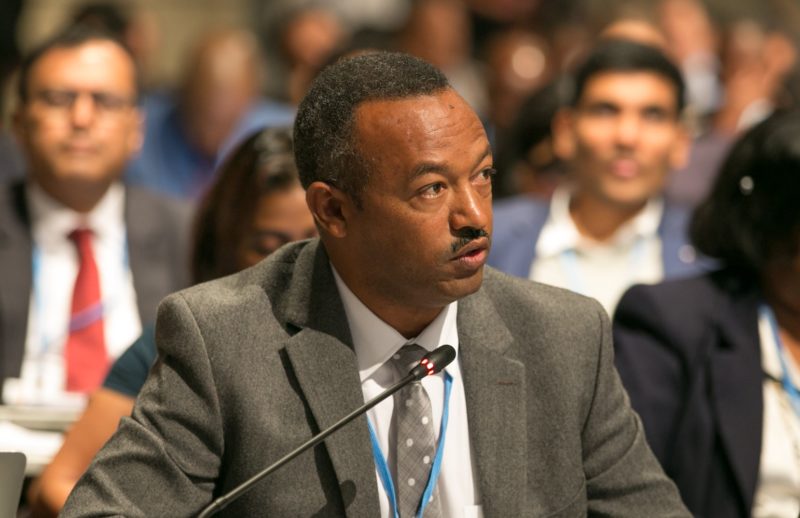As leaders from the world’s largest advanced economies prepare to meet in Charlevoix, Canada from June 8 to 9, 2018 for the annual G7 Summit, the Least Developed Countries (LDC) Group is calling on the G7 to demonstrate that they are moving forward with ambitious climate action and stand in solidarity with the developing world.

A key focus area of Canada’s G7 Presidency is working together on climate change, oceans and clean energy. Addressing climate change is also essential to effective outcomes across the other themes of investing in growth that works for everyone; preparing for jobs of the future; advancing gender equality and women’s empowerment; and building a more peaceful and secure world.
Mr. Gebru Jember Endalew, Chair of the LDC Group, said: “G7 countries need to take the lead in driving ambitious action against climate change. The Earth’s carbon budget is rapidly dwindling, and the existing pledges made by the international community do not add up to the emission reductions necessary to limit global temperature increase to 1.5 degrees and protect present and future generations. This is despite many LDCs and other developing countries committing to actions exceeding their fair share of the effort.
“While the G7 continue to benefit from economies and infrastructure built on fossil fuels, climate change is having devastating impacts across the world. The G7 needs to begin taking action consistent with their responsibility for the climate crisis and with their capability to respond. This includes fulfilling pre-2020 commitments on climate action and support, and moving forward with more ambitious nationally determined contributions that are in line with the long-term goals under the Paris Agreement and will enable the Sustainable Development Goals to be met.”
Endalew noted that climate finance remains well below the $100 billion that developed countries committed to providing annually by 2020.
He explained: “Finance is key to enabling an effective global response to climate change so that all countries have the tools to limit greenhouse gas emissions and protect their citizens from its impacts. The G7 must honour their promises to scale up the financial, technology and capacity support they provide, and must also seriously consider how they can enhance transparency, reliability and predictability of that support.
“The G7 should prioritise investing in a low carbon, climate resilient future, both domestically and abroad. This should include a commitment from the G7 to present a roadmap to phase out fossil fuel subsidies that are hindering efforts to combat climate change. The G7 should build and promote economies that support the needs of all and that do not impinge on the ability of others to live a safe and dignified life.”
The LDC Group chair reflected on the significant impact of severe weather events on economic development, food security, health and migration, saying: “The LDCs are particularly vulnerable to climate change and increasingly suffer loss and damage from climate impacts. The G7 needs to step up and work constructively to establish a concrete plan to protect people and the planet.”
Endalew also welcomed the G7’s focus on advancing gender equality and women’s empowerment, and said: “The empowerment of women, youth, indigenous peoples and local communities is a catalyst for climate action, and should be at the forefront of the international community’s response.”
Looking forward in 2018, Endalew said: “The LDC Group looks forward to constructive conversations in June at the Petersberg Climate Dialogue and the Ministerial on Climate Action. A great deal of work needs to be done in 2018 ahead of COP24, which will be the key moment to finalise the guidelines for implementing the Paris Agreement. We need to see ambitious outcomes this year, with scaled up commitments by the G7 and other countries that are not shouldering their fair share of the international climate effort, informed by the outcomes of the IPCC special report on 1.5 degrees and the Talanoa Dialogue.”
